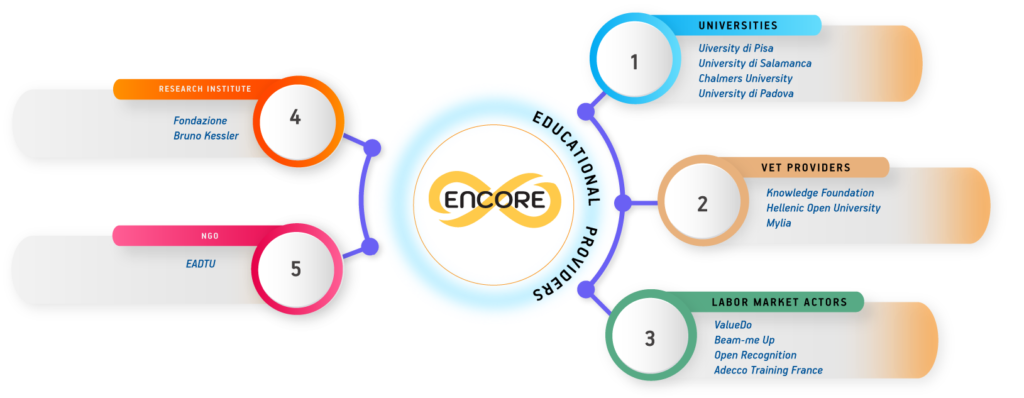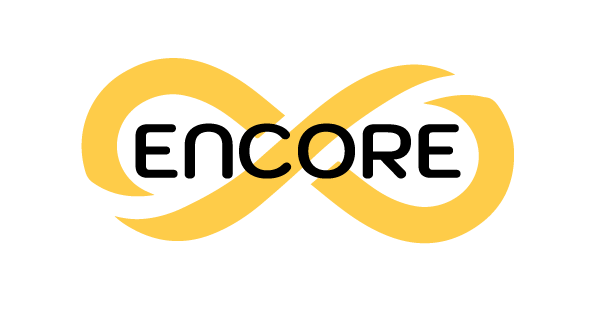ENCORE contributes to the teaching and recognition of the skills most relevant to the new macro-trends of digitalization, climate change, and post-COVID economic recovery challenges.

The digital era is changing the role of educators, that are moving towards becoming education and experienced designers. Furthermore, pedagogical contents are now distributed and accessible, ready to be used for the creation of courses to answer students’ needs for everchanging skills.
The ENCORE (ENriching Circular use of OeR for Education) Project aims to support this change, by contributing to the teaching and recognition of the skills most affected by macro-trends (digitalization, climate change, and post-COVID economic recovery challenges). ENCORE will implement a quantitative/data-driven phase and a qualitative/expert-driven phase, to reuse Open Educational Resources (OER), and support educators in teaching and learning design.
ENCORE aims at facing the following challenges:
- Help the students and workers acquire the skills to face economical, ecological, and technological challenges;
- mitigate the skills mismatch between the demand of companies and the supply of educational institutions;
- support educators to be aligned with the ever-evolving landscape of relevant skills;
- support educators to the fact the evolution of the educational context with proper pedagogical approaches;
- mitigate the reluctance to change the education sector;
- facilitate students in the certification of the skills they acquire through non-standard pedagogical approaches.
With the ENCORE project, the partners want to develop courses to teach skills that will help students face the macro-trends of digitalization, climate change, and post-COVID economic recovery challenges. The project is thus focused on three macro skills:
- Green Skills (G), knowledge, skills, and attitudes linked to the transition to a circular and
greener economy; - Digital Skills (D), knowledge, skills, and attitudes linked to the confident, critical and responsible use of, and engagement with, digital technologies for learning, at work, and for participation in society and;
- Entrepreneurial & Intrapreneurial Skills (E), knowledge, skills, and attitudes linked to the capacity to act upon opportunities and ideas, and transform them into value (financial, cultural, or social) for others (source EntreComp).



